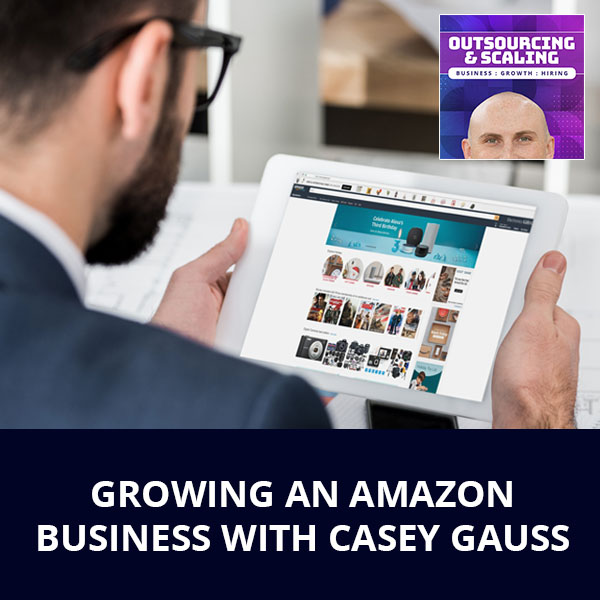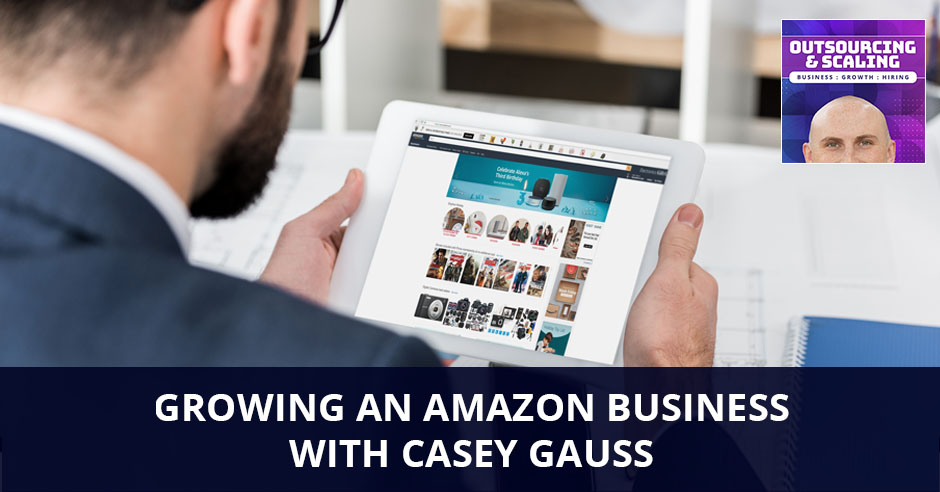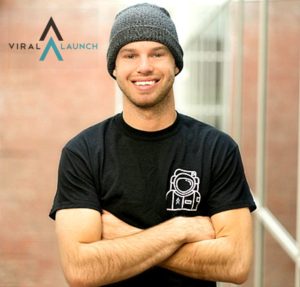


Some people take the normal route while others create their own paths and challenge the status quo. College dropout Casey Gauss decided that following the norm isn’t for him. At the age of 21, he founded Viral Launch, an Indianapolis-based tech company that offers innovative software and creative services to Amazon sellers. Casey talks about growing an Amazon business and providing the best customer service, and reveals how he stays relevant to the Amazon community. He also touches on hiring the best team and gives some tips to anyone wanting to enter the field of entrepreneurship.
—
Listen to the podcast here:
[smart_track_player url=”https://www.podetize.com/statsapi/www.podetize.com/wp-content/uploads/fileuploads/11-5b145ef137b51b3d1af0633e9305c43d/04/2019/b2210cc2c7a70c0d6be35ae557353157.mp3″ title=”Growing An Amazon Business with Casey Gauss” artist=”Nathan Hirsch” image=”https://freeup.net/wp-content/uploads/2019/04/OAS.png” ]
Download the audio file here.
Growing An Amazon Business with Casey Gauss
I have a special guest, Casey Gauss from Viral Launch. Casey, how you doing?
I’m doing so well, Nathan. Thanks so much for having me.
Thanks for being here. For those of you that don’t know, Casey is the Founder and CEO of Viral Launch, an Indianapolis-based tech company offering innovative software and creative services to Amazon sellers. Casey founded this when he was 21 and he was a college drop out. Take us back before Viral Launch. What were you doing? What was your mindset in college? Did you know you want to be an entrepreneur?
There was this one little spark. Originally, I thought I wanted to work up the corporate ladder because I like working hard and I thought that sounded fun, probably in marketing because I like being creative. This one entrepreneur came and spoke in a class and everything was different. Immediately after, I started having all these ideas. I wanted to start all this stuff. I taught myself how to code so that I could make some of these cool ideas. A couple of years later, I knew how to code. I was building iOS apps around new technology. I felt like I wasn’t learning a ton from my professors. I was reading so much. Everything that they were saying was contradicting to what the Fortune 500 CEOs are saying, so I ended up dropping out. I was building iOS apps around new technology. I didn’t have any money coming in, but I had an idea. Chasing after that idea wasn’t working out exactly. I always knew that I could get a coding job if I needed to. A friend of mine was selling on Amazon. He came to me with the idea of Viral Launch. He wanted me to build it and the rest is history.
You mentioned that friend. Do you still work with him? Is he part of Viral Launch?
Yeah, we started the company together. We run track together in college, so that’s how we knew each other. I bought him out officially after a year and in about a few months ago, he joined the team again as a member of our R&D team. He wasn’t up too much. He’s a really cool smart guy. I tried to get him back on the team.
Great communication is going to help everyone understand why you’re making the decisions that you’re making and get rid of assumptions.
You’re 21 and you’re running this company. Talk about that first few years. What was it like?
The first year was almost like happenstance. We threw it up there. We were hoping to maybe make $10,000 in a month as some side money is how I looked at it. We were profitable from the start, which was awesome. It was cool but difficult at the beginning because I was doing everything. I was coding, running customer service and coaching people. There’s a lot of stuff going on which was cool because you had your hands in everything. I’ve learned so many different skills and traits through that. What was cool about it was we set out with no big ambitions and we had no idea what it was going to become. Seven, eight months in, we’re making $25,000 a month. Ten, twelve months in, we were making $60,000, $75,000 a month. We weren’t doing anything but delivering a great service and listening to customer feedback and adopting our tools to that feedback. It was pretty crazy to see that growth.
You’re growing this business. You become profitable. I’m assuming you made some hires in that first year. What were the first key hires that you made?
About seven, eight months in, I hired someone to help me with customer service. Just a little context, we had two kinds of customers. One of those customers were people that like buying things at a discount. We have 30,000 to 40,000 of those. I was at one point doing customer service for those as well as the Amazon sellers. I hired a customer service rep to do that. My second hire was I hired someone to start writing Amazon listings and we had learned how to do that together. Then my third hire was someone to help more operationally.
What do you look for when you’re hiring people? You’ve obviously hired a lot of people now and I know you have an HR department, but do you have a certain type of person that you’re looking for?
There are two main things that I’m looking for. Number one is usually I would classify it as accomplishments. That’s cool if you’re great at writing, let’s say. What I want to understand is how your writing actually translates into real results. Being able to show those results is super powerful. Number two is passion. One of our first hires was a developer and he had a blog on coding. You can see that it’s the things that people do outside of their 9 to 5, outside of their college, whatever it is that shows their passion in the subject. When you see that, then you know these people are experts and/or they’re going to do whatever it takes to become an expert.

That makes a lot of sense. Have you had bad hires along the way? Any failure that sticks out that would be a good story to share?
For those of you who don’t know, we’re about 70 employees now. Through that, we have made some bad hires. If I look back, the number one trait is the lack of self-awareness. Self-awareness is so important because if people aren’t self-aware, they don’t know that they’re not fitting in. They don’t know that they’re not hitting the expectations. That’s super dangerous. I would say lack of awareness. Number two is pay attention to everything. We once hired this girl who was sassy in the interview and she’s talking about how she was sassy to her boss or whatever. We ended up making the hire anyways, then sure enough, this had come up multiple times. That was just a huge learning experience like, “We saw this in the interview. We could have avoided this. We need to pay attention to that.” Those kinds of things.
I’m assuming managing, leading and motivating five to ten people is way different than doing it across 70, 75 people. How do you even begin to manage that many people?
This is something I’m still learning. The biggest answer is that I’ve hired some leadership around me that has the experience doing this. I’m someone that recognizes I don’t have experience. I appreciate the experience. I have a whole executive team now. People like our COO and President, his last company, he was the CEO of 1,300 employees. I’m trying to bring on people because I would not be able to do this without them. It’s number one. Number two, the biggest thing is communication. It doesn’t matter how much goodwill you build with someone. Everyone assumes the wrong things at some point.
Great communication is going to help everyone understand why you’re making the decisions that you are and get rid of those assumptions. Number three is just having some good structure so that people know what they’re owning. If people don’t have something that they own, then it’s uncomfortable for people which isn’t exactly my personality. Having that ownership is so important. They know what they’re being judged by. They know what to chase after and they’re going to be so much more effective because people want to do a good job. It’s important for them to know what doing a good job looks like.
I think the audience wanted to hear that. A lot of people either made bad hires or they’re struggling to motivate and get on the same page with those people. How do you spend your time now? You mentioned before you were coding, you were doing customer service, you were wearing all these different hats. What does your day-to-day life look like now? Where are you spending your time?
People want to do a good job; therefore it’s important for them to know what doing a good job looks like.
In a couple of areas. We still don’t have a strong marketing leader, so I do spend a decent amount of time on the marketing side. Hopefully, that will change very soon. Marketing is not my strength. I also spend a good amount of time talking with different people on the team and trying to understand like, “This person is upset about something. Let me understand how we got to this point where they’re upset so that we can walk backwards and build a better process.” In the early startup days, you are like, “We don’t have many processes, no systems, etc.” Do people appreciate the process and the systems and is it necessary as you continue to scale? Because you’re going to be so much more effective. When people are effective, they are a lot happier.
Spending a good amount of time going and grabbing coffee with different people on the team to make sure that they’re happy, make sure that everyone is as productive as possible and enjoying what’s going on. If not, how we can solve those things. Number three is I’m passionate about the product. I’ve tried to set myself up. My superpower is developing the product and the Amazon strategy. We have a CFO, COO, VP of customer success, HR. We have people in all the areas that I’m not as strong in, but also not as excited about. That’s allowed me to focus more on the product side and work with the devs and the data science team.
That’s very interesting. Inside the life of someone managing 75 people. You said something along the lines of, “One of my biggest fears is losing touch with the Amazon community.” It was at Ed Rosenberg’s conference. That was the reason that you were there. Can you talk a little bit more about that and how you’ve grown and made yourself a part of the Amazon community and what you want to achieve there?
Just a little context, I think that one of our strengths has been that we’re so in tune with what sellers want, need, how they’re thinking about things, understanding what their struggles are and building tools to marry technology and the capabilities of technology as well as those issues. My fear has been, and I’ve seen this a number of times with some of my friends that run companies. When you start a company, you will likely understand a particular industry. As you build the team, it’s very easy to get wrapped up inside of the company and to only be thinking about things going on inside. You have fires to fight and people are getting promotions or someone is struggling with this, etc.
You get so wrapped up in the day-to-day of the company and you lose touch with the outside world. The way that I’ve tried to solve this, there is a period where I was starting to get wrapped up in the company. You have people externally that are like, “That’s so cool.” You have 30, 40 employees and you feel like things are going well, but it’s not necessarily about that. It’s always about the customer. To combat that, I go to a lot of events. Even if they’re smaller events or whatever, I still tried to go because there are a lot of sellers. Different events have different types of people in the industry. It’s always great to connect there.
I spend a decent amount of time on Facebook. Originally, I was getting to this social media. I need to be focused. I don’t care about this stuff, but there are a lot of Facebook groups with Amazon sellers and being able to understand what they’re talking about. Then number three is we built a team in-house. We call it our R&D team. This team is super plugged into the Amazon community. They’re constantly running tests to understand what works and what doesn’t and finding new strategies. The combination of these three things have at least helped me to stay connected with the Amazon community.

Let’s transition to Amazon a little bit. How has Amazon changed over the years? I’m sure when you got in, it was the Wild Wild West. I got in 2008, 2009. How have you seen it evolve and where do you think it’s going?
Sometimes I look back fondly on the old days and I miss them very much. So much has changed. You didn’t have to focus as much on the product or the quality of products. I’m not saying that people were sourcing bad products, but now the standard bar of operation is so much higher. One, you could source just about anything. Two, you didn’t have to have amazing photos like you do now. You didn’t have to go and have a killer listing. Some people did and that was a huge advantage to them. Now, it’s the standard of operation. In the marketing side, going in and driving the sales, you could give products away in exchange for a review. What people would do is they would go for super competitive, super high volume products. Let’s say vitamin C serum or whatever. The top Vitamin C serum seller has 1,000 reviews. What they do is they’d give away 1,200 units and get 1,000 reviews out of it. Then they’d give away some units to drive keyword ranking. Within a month, they have 1,000 reviews. They’re selling 250 units a day and now they’re onto the next product.
Not only that, but you felt very secure because Amazon was not making many changes. There are no changes happening. It’s very easy to stay up to date and understand best practices. Fast forward to now, it’s very difficult to get reviews for a number of reasons. The standard bar of operation, you have to have a great product with a good offer. Meaning, if everyone’s selling ten reusable straws for $10, you have to be able to match that or be close to that. You can’t sell ten for $30. On the marketing side, it’s a lot more expensive. There are still a lot of opportunities for you to drive keyword ranking, to drive sales. It’s way more expensive than it used to be. I think we see or are seeing a lot less new sellers coming into this space. I expect this trend to continue to happen. Positives and negatives, Amazon overall has grown. It’s a bigger opportunity in the Amazon space. It’s a little more difficult to get to.
Let’s say someone’s reading and they do over $1 million a year. You work with a lot of big sellers. What advice can you give them to scale their business even more?
I see people get stuck in the $1 million to $5 million mark. Number one is to build a team. Many people get to that $1 million mark or $3 million mark or whatever it may be by themselves and so they try to continue to do it themselves. Building a team is so important. You have to be outsourcing different components or else you won’t be able to scale. That’s a huge mistake that I see people make is they’re not willing to hire. Maybe they’d tried hiring someone and it didn’t work out or people are like, “No one can do it as well as me.” I get those things, but if you want to be able to scale your business, you’re going to have to learn how to hire the right people and hand tasks off to them or core responsibilities.
Number two is I see a lot of people at this stage start focusing on getting off of Amazon. In theory, I 100% agree. The problem is it’s so much more difficult to get out off of Amazon than it is to grow an Amazon business. I’ve seen so many people make the mistake of spending 70%, 80%, 90% of their time trying to push into retail or some of their channels. They see their Amazon sales start to fall and they make very little headway off of Amazon. If you are going to do that, make sure that you continue to focus on Amazon. It’s really important. Number three is if you’ve got to $1 million, if you’ve got to $5 million, you know what you’re doing. Just do more of that.
Building a team is so important. You have to outsource different components or else you won’t be able to scale.
That’s great advice. I have some random questions and then we’ll wrap it up. In the past few years, is there any personal habit or something outside of the business that’s helped you separate business and personal and be more productive?
I am not the right person to ask on work-life balance or separating the two. I pretty much only work. Going to the gym has been important to me. Eating well and cardio exercises have been huge for my mental clarity and being able to have the energy to continue to push when it’s tough sometimes.
There are a ton of gurus out there. There are lots of people selling courses. Without naming names, is there something out there that you think is false that a lot of people are saying you should do that you shouldn’t?
There are a number of smaller things. I don’t think that you should be running giveaways right now. I think that there are some opportunities for you to launch your product and do well with PPC at aggressive price points. Giveaways is how we built our business, but I no longer think it’s the best strategy for diving keyword ranking. I’d say that’s number one.
If there’s a college kid reading this, they’re unsure whether they should go out, get a real job or they should take the risk, they become an entrepreneur, from someone who’s been in that position who’s made it at least to this point and had a lot of success, what advice would you tell them?
If you have something, an idea or some skills that you want to chase after, there are a lot of opportunities to do that. Especially if you have something going for you already, you don’t need that college degree in order to get on to the next step. It’s important to understand where you want to go and if having a college degree is going to help you, I think you should do that. This is probably not what you’re expecting, but I honestly think that there’s a good amount of value to going and getting a real job and with a good mentor that would allow you to learn a lot.

I feel like I’ve missed a lot from those real jobs. I honestly feel like there’s no wrong way to go. The wrong way to go is to be in the middle and go get a job that you’re not going to learn much from. You’re not going to have a great mentor because that’s wasting your time. You should go the entrepreneurial route. There are so many ways to make money now online. I’ve seen so many people go on and be millionaires or maybe even tens of millionaires. The opportunities are significant. If that’s what you want to do, then that’s amazing. There is some advantage to going and getting a real job for a little bit, but you can make both work.
Thanks so much for coming on. How can people find out more about you and connect with you? What’s Viral Launch have going on right now?
The best way to get ahold of me is through Instagram. That’s where the least amount of people reach out to me. I’m a little bit better at getting back to everybody.
Check out Viral Launch. Casey, thank you so much. I appreciate the time and I’m sure I’ll run into you at some conferences going forward.
Thanks so much for having me. Take care.
Important Links:
- Viral Launch
- Instagram – Casey Gauss
About Casey Gauss
 Casey Gauss is the founder and CEO of Viral Launch, an Indianapolis-based tech company offering innovative software and creative services to Amazon Sellers.
Casey Gauss is the founder and CEO of Viral Launch, an Indianapolis-based tech company offering innovative software and creative services to Amazon Sellers.
Casey founded the company in 2014 when he was 21. He has gone on to leverage his passion for tech, building cool things, learning, and helping others through the expansion of the company to over 40 employees.
He continues—nose to the grind—in his obsession with Amazon market philosophy, helping a growing number of Amazon businesses achieve success in the world’s largest e-commerce marketplace.
